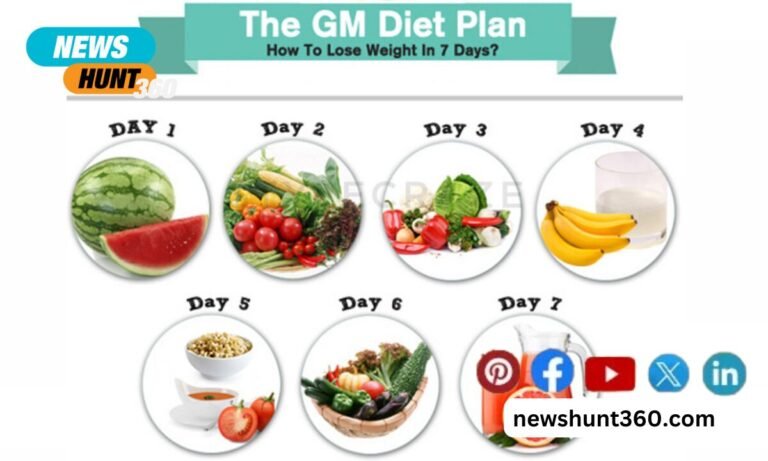It is essential to be aware of your child’s growth and development, especially during the early years. It is during this time your baby experiences vital growth physically, emotionally, and mentally.
Children vary in their development procedure so some of them might speak early while some of them speak later. One of the Chicago Speech Therapists recommends that if you feel something is wrong you should consult with a professional instead of just assuming that it is a natural process so let it improve on its own.
According to GreaterThanPerformanceandRehab, “Since a child has to go through every basic thing to know life, it will be known as a milestone if he or she does something at such a young age. These milestones will collectively help the child to grow normally.”
Speech and hearing are important milestones for any child. Although all children can hear when they are born unless they are deaf, some of them have difficulty speaking words.
Here, we will be sharing 10 essentials (agewise) that can help you determine if your child’s speech and hearing milestones are developing at the right time. If the baby’s timing matches with the guide, it is all good, if it is not, you should talk to your child’s doctor and figure out a solution.
Speech and Hearing Milestones (Agewise)
1- 0 to 3 months
This is a pretty early stage. Most of the babies are always crying. The milestones at this age are as follows.
· A newborn baby reacts to loud sounds.
· The babies give a response by crying, laughing, and giggling when they hear a pleasurable or bad voice.
· He or she can turn their head toward a sound source. It also means that he or she is not deaf.
· Babies tend to watch the face of the person who is speaking to them.
· They try to make noise to talk to people.
2- 3 – 6 months:
· Babies make gurgling sounds.
· Babble and make different sounds even when they are alone.
· Pays attention to music and toys that make a sound.
3- 6 – 12 months:
· Now they will understand the word No.
· They will try to communicate through actions or gestures.
· They will copy your style of how you communicate or talk after careful observation.
4- 13 – 18 months:
By the time your baby is one year old they should be able to speak and hear things. If they don’t speak or hear, take them to a doctor to treat them.
· They play with a toy for some time.
· They will be able to follow simple directions along with some facial or hand gestures.
· Starts saying two to three words to people or any object. But pronunciation is not good usually.
5- 18 – 24 months:
· They start to enjoy reading and listening to stories.
· They will be able to follow simple commands by hearing properly.
· They will be able to know body parts such as the nose, mouth, lips, etc.
· They will speak words like bye-bye, milk, toys with better pronunciation.
· At this age, they will be able to imitate animal sounds.
· They will be able to speak more than 30 words.
6- 2 – 2.5 years:
Another big milestone is here when your baby turns 2. At this age, babies don’t sit and roam around all day messing everything up. But in their mind, they are just being productive.
· Your baby will know about 50 or more words.
· They will know some spatial concepts such as in or on.
· They will know pronouns including you, me, and her.
· Children will be able to recognize family members and their voices.
7- 3 – 3.5 years:
· Babies will know descriptive words such as big and happy.
· Baby will be able to answer a question.
· Can ask for direction or anything else as well.
· Strangers might not be able to understand what your child is saying but parents and siblings will be able to understand what they say. The speech will become better as the child ages and hears more words. If your child is noticeably having difficulties with these milestones, it’s crucial to intervene during these formative years. A more hands-on approach might be needed to get your child’s speech and hearing refined, you might even need professional help for this. Speech therapy for toddlers assists your child with learning successful communication while at play or school.
8- 4 – 4.5 years:
At 4 years, the children will actively participate in talking and listening. Children will begin to know the use of plurals, such as shoes, pencils, or clothes. They will also start using the right sentence structure to depict the past, present, or future. Other speeches and hearing development are as follows:
· They will be able to group objects, such as food, toys, clothes, and many things like that while talking about them.
· After hearing over and over again, your children will be able to identify in between the colors.
· They will get better at pronunciation but wouldn’t master it until the age of 6. They still distort words that have l, r, a, sh, ch, y, v, z in them.
· Able to sing poems by now.
9- 5 years:
· Hear you calling from the phone.
· Able to hear what is being said.
· By the time of 5 years, most children are in school, so their vocabulary is quite improved.
· They can talk descriptively with other children and even with adults.
· They can share stories of preschool with their parents.
10- After 5 years
Expect your 5 years old baby to talk a lot more. At this stage, kids have the desire for learning faster. If your child is an eager brain, there’s no limit. At school, they’ll pick up plenty of social skills and also learn different things, and handle learning tools like pencil and books.
Conclusion
Children tend to start with simple skills and then eventually develop complex skills. With time, they develop all sorts of skills and become aware of their surroundings. There is a certain age and time when children pass through these periods. These milestones help parents, family members, doctors, and other health professionals determine when a child may need extra help with any skill. So, keep a close eye on these milestones.




